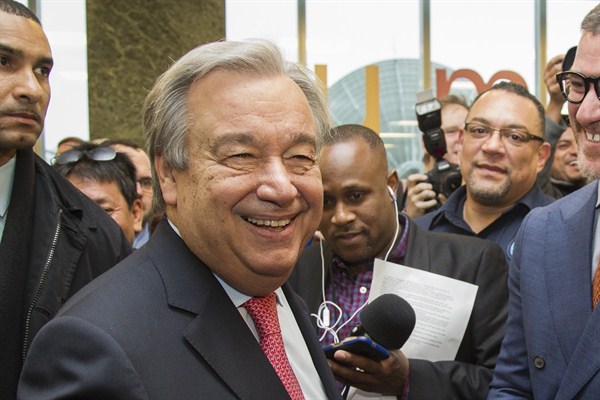Antonio Guterres is off to a strong but slightly surreal start as the United Nations’ new secretary-general. Since replacing Ban Ki-moon at the start of the year, the former Portuguese prime minister has moved fast to place his stamp on the organization. Yet, while U.N. officials are keen to see their boss succeed, all are conscious that the administration of U.S. President-elect Donald Trump could soon place the institution under severe political pressure. The new secretary-general’s chances of leading the U.N. effectively over the next five years may be shaped by how he handles Trump in the next few months.
Guterres wants to tackle the U.N.’s problems head on. On his first full day on the job after the New Year break, he circulated a note stating that “the [U.N.] secretariat is under-performing in conflict prevention, in peace operations and in its efforts to sustain peace, and some of the solutions to this problem lie within our control.”
This is not exactly a revelation: Ban oversaw a series of studies of the organization’s work in recent years that highlighted its flaws in considerable detail. But whereas Ban largely confined himself to tinkering with technical fixes, Guterres has indicated that he could launch large-scale institutional reforms to the confused tangle of departments and offices that run U.N. crisis-management operations.

